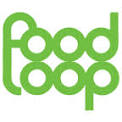FoodLoop: Europes first IoT commercial platform?

The second Future Internet conference at the Technical University in Munich this week launched the third phase of the project sponsored by the European Commission which sees the break out of technology into the market by the offer of ‘free cash’ to developers who agree to use the plaform for their ideas.
At the conference, a keynote presentation was made by Christoph Muller-Dechent, CEO of the first commercial startup to be built on FI-WARE. His new venture, FoodLoop has already exploited the advantages of automated use of ‘Big Data’ for a fantastic new business model aimed at saving huge amounts of food waste by supermarkets around the world.√جª¬ø
The FI-PPP [Future Internet Public Private Partnerhip] is now in its 4th year. This is a major initiative funded by the European Commission to fight back against American and Far Eastern domination of the new Internet of Things [IoT] market that is set for explosive growth around the world. See article on this blog dated.
Click here to visit the European Commission site http://ec.europa.eu/digital-agenda/future-internet-public-private-partnership
Click here to visit the EU-PPP main website. http://www.fi-ppp.eu/
FoodLoop
FoodLoop http://www.foodloop.de/ is probaly the first commercial application to be developed out of the FI project. In German, every year 11 million tons of edible food ends up in the trash. This correlates to E25 Billion worth of high quality products being destroyed around the world.Goods that are close to the expiry date are especially affected.
This new app allows supermarkets to scan all of their inventory and communicate information to consumers who can then purchase fresh food at discounted prices.This remarkably simple idea has already been adopted by a number of supermarkets prior to the App being released, and is poised to be a huge success. This ‘circular economy’ solution to a major issue should prove to be a ‘win win’ for consumers, producers and the supermarkets, achieving substantial reductions in the use of energy and a dramatic effect on the reduction of GHG emissions from global food production.√جª¬ø
The Internet of Things [ IoT ] 
IoT is a smart- infrastructure that will connect every machine, business, residence and vehicle in an intelligent network, all embedded in a single operating system, continually feeding Big Data to every node Рbusinesses, homes, vehicles etc Рmovement to moment in real time. The Big Data will be machined using advanced analysis, transformed into predictive algorithms, programmed into automated systems to increase productivity and reduce the marginal cost of production and delivery across the entire economy.
The emerging Internet of Things is a smart- infrastructure that will connect every machine, business, residence and vehicle in an intelligent network, all embedded in a single operating system, continually feeding Big Data to every node Рbusinesses, homes, vehicles etc Рmovement to moment in real time. 
The network is designed to be open, distributive and collaborative, allowing anyone, anywhere, and at any time, the opportunity to access it an use the Big Data to create new apps for managing their daily lives.
In the United States 37 million smart meters are now providing real time information on energy use. Within 10 years, every building in America and Europe as well as other countries will be equipped with smart meters. Every device Рthermostats, assembly lines, warehouse equipment, TVs washing machines will have sensors connected to the smart grid and IOT platform. The number of sensors connecting things to the internet has grown from 10 million in 2007 to 3.5 billion today, with projections of 100 trillion sensors by 2030. A new internet protocol, IPv6 has been developed by the Internet Engineering Task force with a massive capacity.
Phase 1 FI- WARE
The first stage of the FI project was to build a core platform in conjunction with collaborative approaches in Healthcare, Manufacturing, SmartCities, Energy, Ari-Food, Logistics, Space and Transport. Core ‘enablers’ were built as the foundation for developers [for example data context, business delivery, security, advanced cloud and interfaces to networks and devices.
The aim has to build a dynamic ‘ecosystem’ of business, developers, consumers and technical people, building ‘Apps’ using tools that have been developed and improved by others, yet retaining their own IP for their ideas, without having to reinvent the wheel in terms of IT development.√جª¬ø


